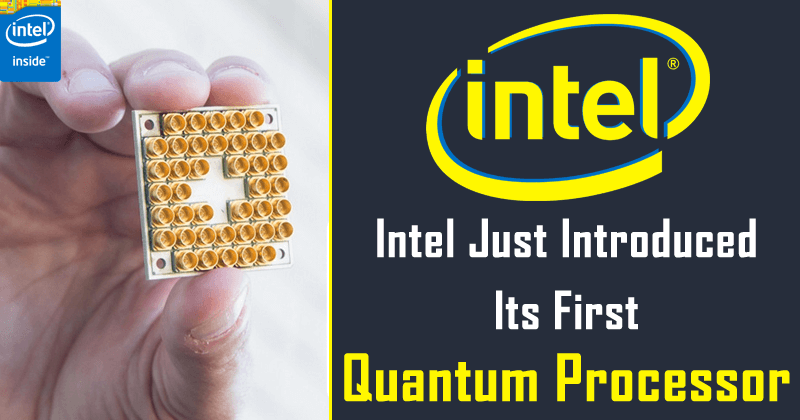
Meet Intel’s First Quantum Processor
Quantum computing could come much sooner than we expected. IBM has already shown its own quantum processor last May and scientists have now been experimenting with new technologies, such as silicon-bonded diamonds, to achieve a quantum substrate.
The tech giant Google is already seeing solutions based on the cloud and the tech giant Microsoft – as we have already reported – is ahead of the facts with a new programming language for possible quantum computers.
It is now the giant chip manufacturer Intel that goes one step further in making quantum computing a reality; the company has created a superconducting chip, which is already in the hands of its researchers and development partners in the Netherlands, QuTech.
According to the giant chip manufacturer Intel, the bricks of quantum computing, the qubits, are very fragile. They can only operate at very low temperatures (250 times colder than deep space) and should be packed very carefully to avoid data leaks.
The giant chip manufacturer Intel’s research group in Oregon and Arizona have found a way to manufacture a 17-qubit chip, which allows the architecture to be reliable enough at high temperatures in addition to reducing RF interference between each qubit.
As it can be seen, the technological challenge is enormous and complex. The chip can receive between 10 and 100 times more signal than other chips of this nature and has an advanced design that allows applying a series of techniques to large integrated quantum circuits, which are, therefore, much larger than chips silicon.
“These advances are expected to bring us into new paradigms in computing, such as neuromorphs and quantum computing,” he also added.
So, if you liked this article then simply do not forget to share this article with your friends and family.


